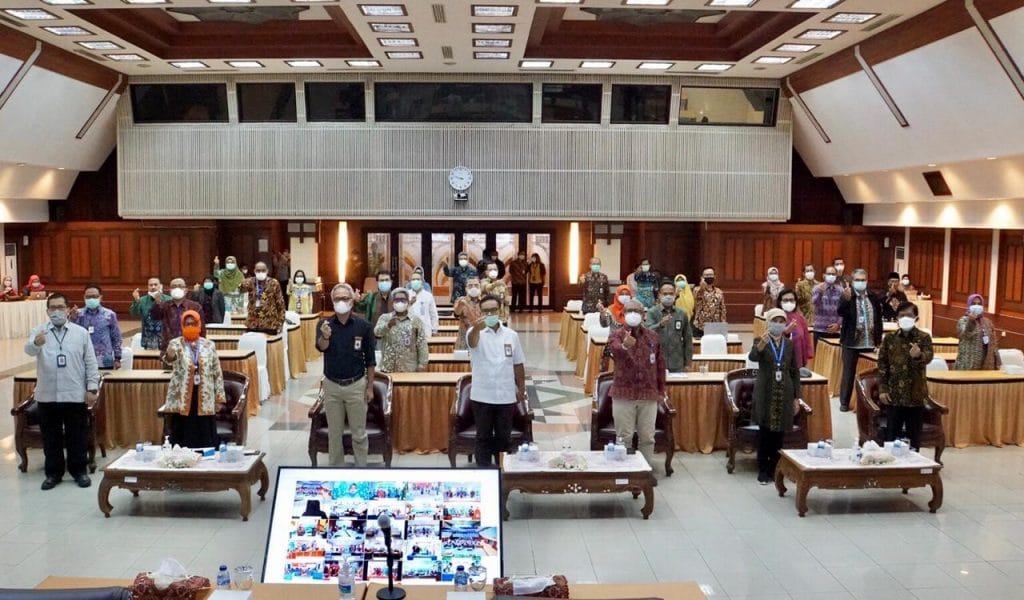
Jakarta – The National Population and Family Planning Board (BKKBN) held a Technical Coordination Meeting for Bangga Kencana Program Partnership in Fiscal Year 2021. The meeting aims to coordinate actions to accelerate the implementation of Family Development, Population, and Family Planning (henceforth Bangga Kencana) program. An early planning is important to make sure the program’s success, especially to respond to several crucial issues during the pandemic. For instance, the increased rate of pregnancy among couples in reproductive age. Strong synergy, integrated actions, accelerated programming, and commitment of stakeholders and partners alike are imperative in Bangga Kencana implementation nationwide across all government levels. In this occasion, the Meeting was attended by echelon I and II central and sub-national officials, employees in BKKBN’s head and provincial offices, military representatives, central and provincial offices of the Indonesian Midwives Association (IBI), and central and provincial Family Welfare Movement (PKK) coordination offices.
Collaboration and partnership are key to any success in development, including in Bangga Kencana. National development, which pursues a just and prosperous society, is a shared responsibility between the government and non-government actors, private sector, academia, and civil society organizations. Recognizing this, collaboration and partnership have been at the core of BKKBN’s work since its conception in 1957. BKKBN has been building solid partnership in programs such as birth spacing and population control via, among others, marital counseling.

In his remarks, Chairperson of BKKBN Dr. (HC) dr. Hasto Wardoyo, Sp. OG (K), said, “BKKBN is thankful for the strong support, commitment, and collaboration of its partners – the military, PKK, and IBI – in educating and raising public awareness as well as facilitating access to family planning services.”
“BKKBN has an upcoming momentous task, the Family Data Collection. It is going to be carried out simultaneously in all provinces in Indonesia in April 2021 to get the latest quantitative and qualitative data and information about Indonesian families. The activity will heavily involve field volunteers and certainly our dear participants in this meeting, who are at the forefront of BKKBN’s partnership,” said dr. Hasto.
The Family Data Collection is distinct from the Population Census recently carried out by Statistics Indonesia (BPS). The data captured in Family Data Collection will make up ‘one and single data’ on Indonesian families and can be used to inform performance planning, strategies and activities, evaluation in population control and family development, as well as other programs.
“BKKBN has built strong, long-lasting partnerships that are conducive to our performance with partners from the military, IBI, and PKK. I thank you once again for your support,” dr. Hasto said.
According to the results of the 2020 Population Census, Indonesia has a population of 270.2 million people by 2020. This size of population increased by 32.56 million compared to the 2010 Census with a population growth rate of 1.25% in the last decade. This result alone indicates that Bangga Kencana program has successfully brought down the growth rate from 1.49% per year in the period 2000-2010.
- Hasto further expressed his expectation on the cooperation: “We hope the cooperation can minimize, even eliminate some persistent challenges that BKKBN has been facing over the years, such as increased contraceptive dropout rate among couples in reproductive age, increased unmet need during the pandemic, disrupted activities for parents across all program segments, and the lack of integration of Bangga Kencana with other sectors of development,” he concluded. (Humas/TWD)